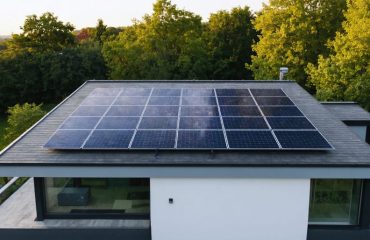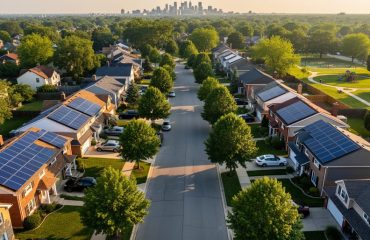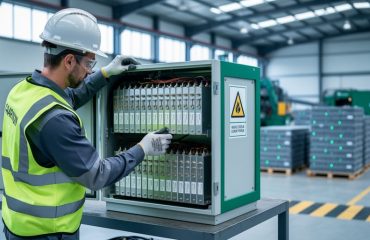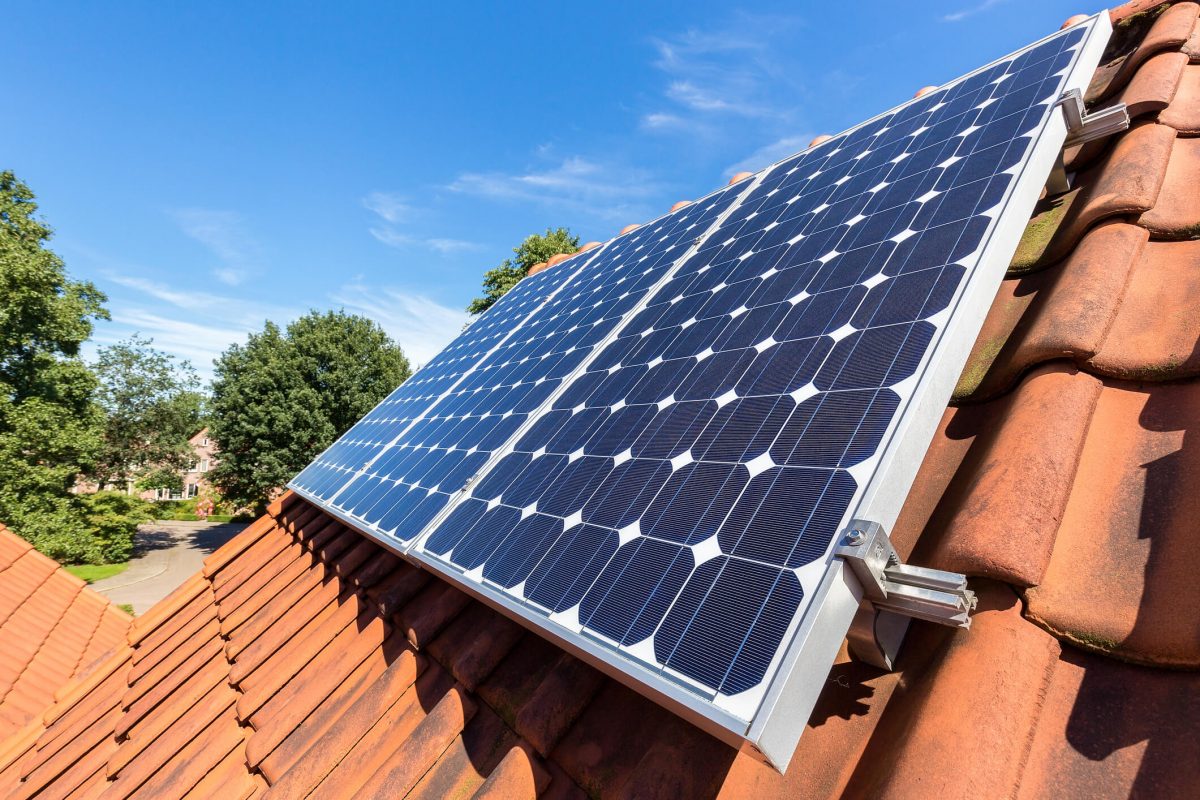The Zero Emission Transportation Association (ZETA) stands at the forefront of America’s transition to clean mobility, uniting industry leaders, policymakers, and environmental advocates in the push for 100% electric vehicle adoption by 2030. As the first federal coalition focused exclusively on accelerating the transition to electric vehicles, ZETA represents a powerful force in shaping sustainable transportation policy and infrastructure development across the United States. Through strategic advocacy, public education, and innovative partnerships, this organization is transforming how Americans think about and access clean transportation options. For homeowners and environmentally conscious consumers, ZETA’s work translates into expanded charging infrastructure, more affordable electric vehicles, and cleaner air in our communities. This comprehensive approach to transportation electrification not only addresses climate change but also promises significant economic benefits, from reduced fuel costs to new green jobs in the automotive sector.
ZETA’s Mission and Core Policy Objectives
Consumer Incentives
Consumer incentives play a crucial role in accelerating the adoption of zero-emission vehicles. The federal government offers substantial electric vehicle tax credits of up to $7,500 for qualifying new EVs, making the switch to clean transportation more affordable for many households. Beyond federal incentives, many states and local utilities provide additional rebates, reduced registration fees, and special electricity rates for EV owners.
These financial benefits often include home charging infrastructure support, with some programs covering up to 50% of installation costs for residential charging stations. Workplace charging programs and commercial fleet incentives further expand the accessibility of zero-emission vehicles. Some regions also offer non-monetary perks like HOV lane access, preferred parking, and reduced toll fees.
To maximize these benefits, consumers can often stack multiple incentives, combining federal, state, and local programs. This comprehensive approach to consumer support helps offset the initial cost difference between conventional and zero-emission vehicles, making sustainable transportation choices increasingly attractive for budget-conscious households.
Infrastructure Development
The cornerstone of zero-emission transportation lies in robust infrastructure development, with EV charging network expansion leading the way. Across the nation, strategic initiatives are transforming how we power our vehicles and modernize our electrical grid. Public-private partnerships are accelerating the installation of fast-charging stations along major highways and in urban centers, making electric vehicle ownership more practical for everyday drivers.
Grid modernization efforts are equally crucial, focusing on smart technology integration and increased capacity to handle growing charging demands. These improvements ensure reliable power delivery while maintaining grid stability. Utility companies are implementing time-of-use rates and smart charging programs, enabling EV owners to charge their vehicles during off-peak hours at reduced costs.
Local communities are also benefiting from these developments through improved air quality and reduced noise pollution. The infrastructure rollout creates new jobs in installation, maintenance, and technical support, while simultaneously preparing our cities for a cleaner transportation future. These improvements make the transition to zero-emission vehicles more accessible and convenient for homeowners and businesses alike.
Impact on Home Energy Solutions

Home Charging Integration
Home EV charging seamlessly integrates with residential solar systems and battery storage, creating a comprehensive clean energy ecosystem for homeowners. By combining these technologies, you can power your electric vehicle using renewable energy generated right from your rooftop, significantly reducing both carbon emissions and electricity costs. Modern smart charging systems automatically coordinate with your home’s energy management system, prioritizing charging during peak solar production or when electricity rates are lowest.
This integration allows homeowners to maximize their energy independence while minimizing their environmental impact. Many homeowners find that adding EV charging to their existing solar setup requires minimal additional infrastructure, as the main components are already in place. The system can be programmed to ensure your vehicle is always ready when needed, while maintaining optimal battery health and energy efficiency for your entire home.
Grid Benefits
Integrated home energy systems create a powerful synergy between clean transportation and household energy management. By combining solar panels, home batteries, and smart charging systems, homeowners can maximize the benefits of their electric vehicles while reducing overall energy costs. These systems enable you to charge your EV using self-generated solar power, effectively eliminating fuel costs and reducing your carbon footprint.
Smart grid integration allows your home to optimize charging times, taking advantage of off-peak rates and renewable energy availability. During power outages, your EV can even serve as a backup power source for your home, providing additional energy security. The combination of solar panels and battery storage also helps stabilize the local power grid, reducing strain during peak demand periods.
Moreover, these integrated systems often qualify for various tax incentives and rebates, making the transition to clean transportation more affordable while increasing your property’s value.
Progress and Success Stories
ZETA’s advocacy efforts have yielded impressive results in advancing zero-emission transportation across the United States. In 2022, the organization played a pivotal role in securing the passage of the Inflation Reduction Act, which introduced substantial tax credits for electric vehicle purchases and charging infrastructure development. This legislation has made sustainable transportation more accessible to average American families, with many reporting savings of up to $7,500 on new EV purchases.
The association’s influence extends beyond federal policy. Through targeted state-level campaigns, ZETA has helped implement clean vehicle standards in several states, including California, New York, and Massachusetts. These initiatives have led to a marked increase in electric vehicle adoption, with EV sales growing by over 65% in these regions since implementation.
In the private sector, ZETA’s partnership programs have encouraged major automotive manufacturers to accelerate their transition to electric vehicle production. Companies like Ford, General Motors, and Volkswagen have committed billions of dollars to EV development, partly due to ZETA’s advocacy and market research.
Infrastructure development has seen remarkable progress through ZETA’s efforts. The organization’s coordination with utilities and local governments has resulted in the installation of over 100,000 new charging stations nationwide. This expansion has significantly reduced “range anxiety” among potential EV buyers and made electric vehicles a practical choice for more Americans.
ZETA’s public education campaigns have also yielded positive results, with surveys showing a 40% increase in public understanding of zero-emission vehicles’ benefits since 2020. Their myth-busting initiatives have helped address common concerns about EV ownership, leading to greater consumer confidence and adoption rates.
For homeowners, ZETA’s advocacy has resulted in simplified processes for home charging installation and increased availability of residential solar integration options, making the transition to electric vehicles more seamless and cost-effective than ever before.
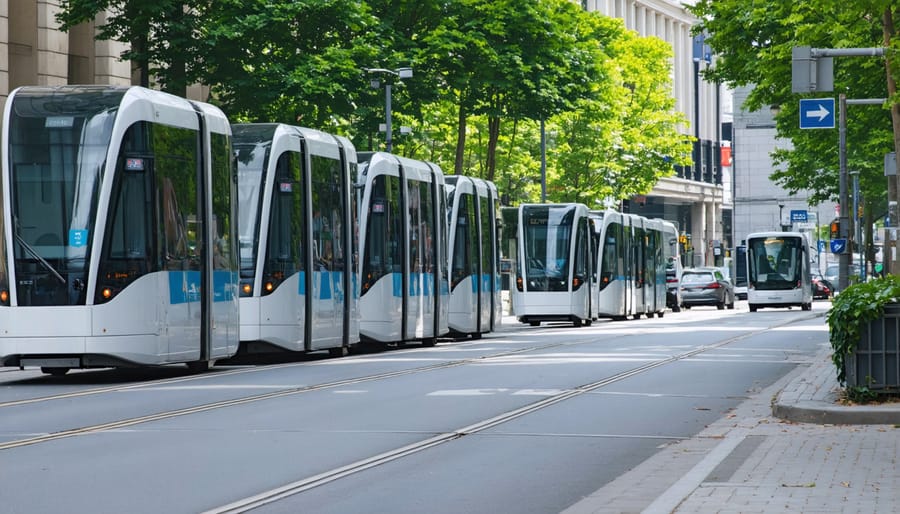
Future Outlook and Opportunities
The future of zero-emission transportation looks increasingly promising, with several groundbreaking policy initiatives on the horizon. The Infrastructure Investment and Jobs Act has already laid a strong foundation, but upcoming legislation could further accelerate the transition to clean transportation across America.
One of the most anticipated developments is the expansion of the national charging network. Federal and state governments are planning to install thousands of new charging stations along major highways and in urban areas, making electric vehicles more practical for daily use. This infrastructure growth is expected to address one of the primary concerns of potential EV buyers – range anxiety.
Tax incentives for clean transportation are also likely to expand. Several states are considering following California’s lead in offering additional rebates and incentives for both personal and commercial zero-emission vehicles. These programs could make electric vehicles more affordable for the average household while encouraging businesses to transition their fleets to cleaner alternatives.
The commercial sector presents particularly exciting opportunities. With major corporations pledging to achieve carbon neutrality, the demand for zero-emission delivery vehicles and public transit options is set to surge. This shift could lead to improved air quality in urban areas and reduced transportation costs for businesses, potentially resulting in savings for consumers.
Local governments are increasingly adopting zero-emission vehicle mandates for public transportation. Many cities are committing to fully electric bus fleets by 2030, creating a ripple effect that encourages private sector investment in clean transportation technology. This transition is expected to create numerous jobs in manufacturing, maintenance, and charging infrastructure development.
Innovation in battery technology continues to advance rapidly, with experts predicting significant improvements in range and charging speeds within the next five years. These developments, combined with decreasing production costs, should make electric vehicles increasingly competitive with traditional vehicles in terms of both price and performance.
For homeowners, these changes present opportunities to participate in the clean transportation revolution while potentially earning income through vehicle-to-grid technology, which allows electric vehicles to serve as power storage units for the electrical grid during peak demand periods.
The Zero Emission Transportation Association continues to play a pivotal role in shaping America’s transition to cleaner transportation options. Through its dedicated advocacy, policy initiatives, and collaboration with industry leaders, ZETA is helping to make electric vehicles and sustainable transportation solutions more accessible and affordable for everyday Americans. Their efforts have contributed to increased consumer awareness, expanded charging infrastructure, and supportive policies that make clean transportation choices easier for homeowners and families.
Looking ahead, ZETA’s work remains crucial in accelerating the adoption of zero-emission vehicles and creating a more sustainable transportation future. Their focus on education, policy development, and industry partnerships helps break down barriers to clean transportation adoption while promoting economic growth and environmental protection. For homeowners considering the switch to electric vehicles, ZETA’s resources and advocacy efforts provide valuable support and information to make informed decisions about sustainable transportation options.
By bridging the gap between policy makers, industry leaders, and consumers, ZETA continues to drive positive change toward a cleaner, more sustainable transportation future for all Americans.


